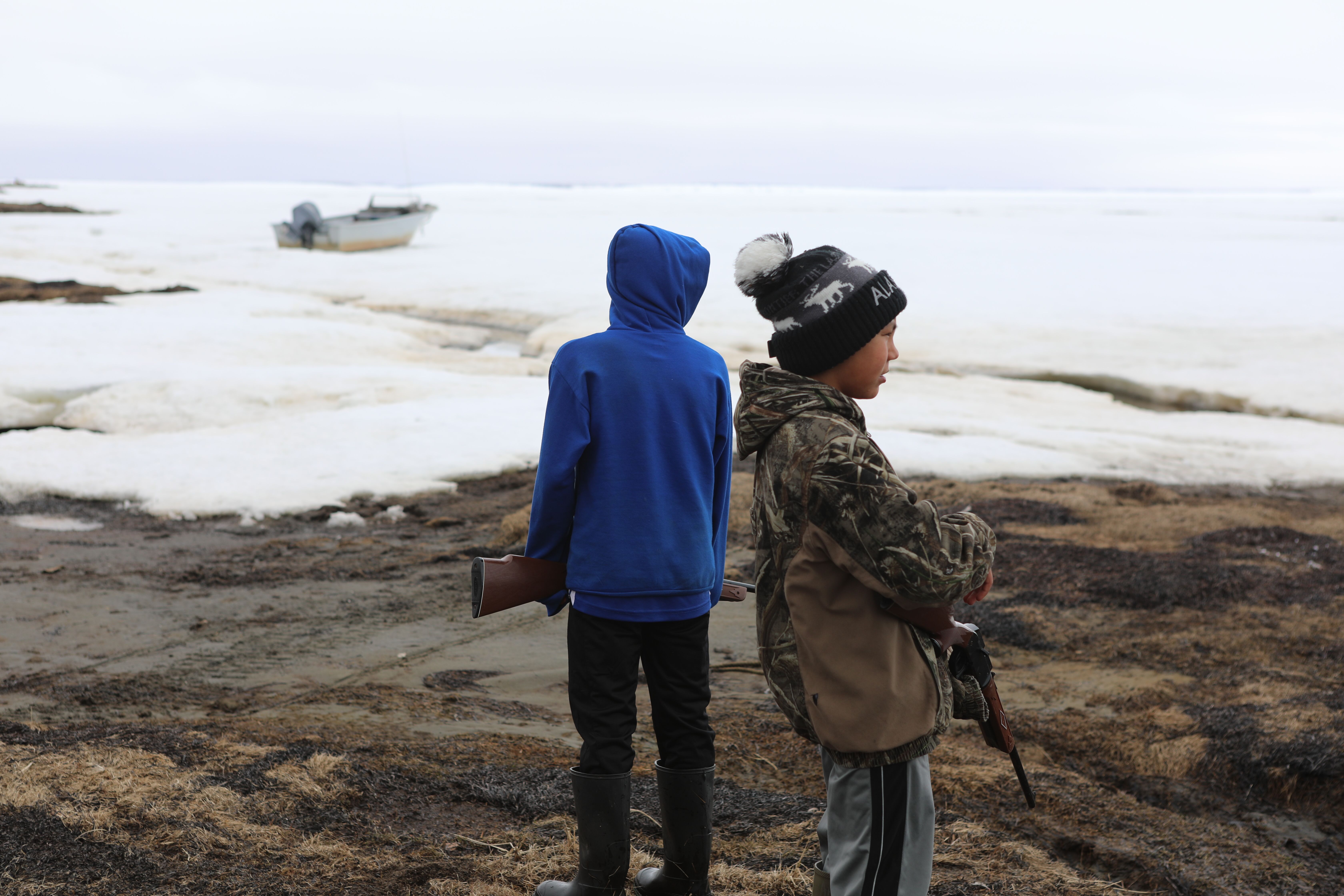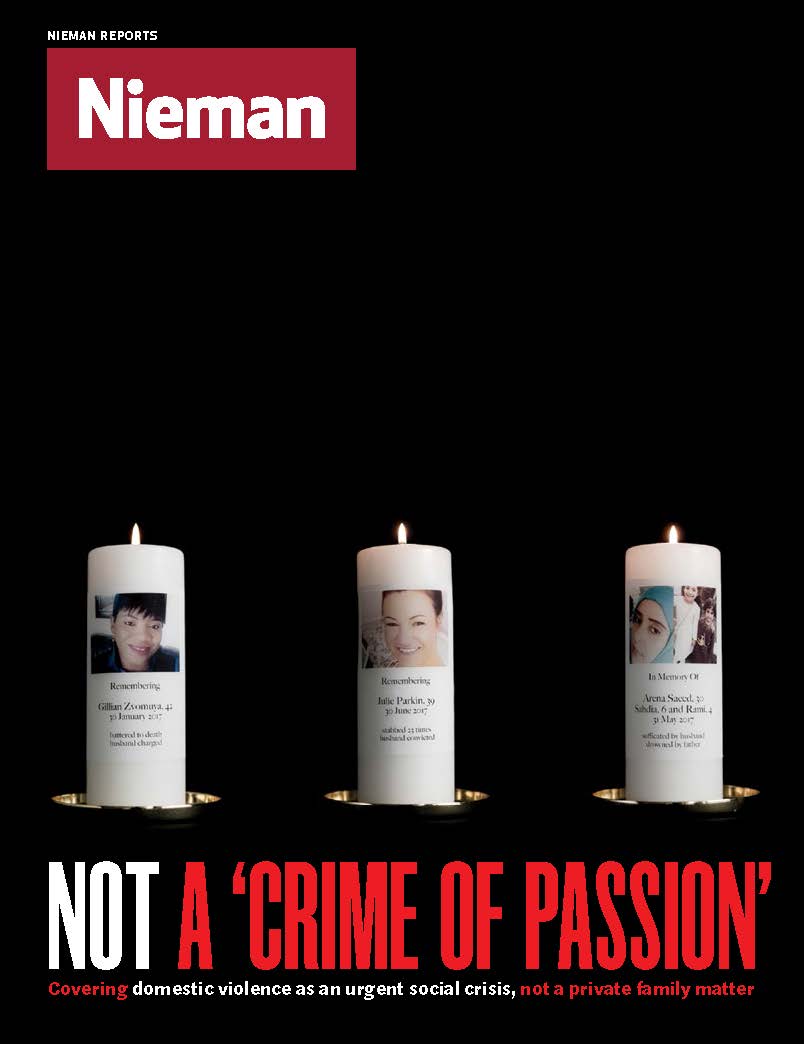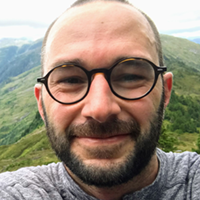
Young people hunt for small birds outside Shishmaref, Alaska, in the spring of 2019. They face uncertain futures because of the climate crisis
The most interesting stories last more than a lifetime.
This was especially apparent to me on a recent visit to Shishmaref, Alaska, an Inupiat village near the Arctic Circle that is faced with the prospect of relocation because of the climate crisis. I flew up there as part of the “Baseline” documentary series I’m directing with the support of a Knight Visiting Nieman Fellowship and a grant from the National Geographic Society.
The point of this series, which is still in its early development stages, is to stretch the public’s collective memory of environmental change by filming intimate portraits of a few climate hotspots—and then committing to revisit those same people and places well into the future. I’m in my mid-30s, and, strange as it sounds, it’s a project I hope will outlast me.
I landed in Shishmaref on a tiny plane carrying only me, my colleague, Edythe McNamee, our equipment, some mail, and the pilot. I’d been to the village twice before while reporting for CNN, but it continues to strike me how simultaneously edge-of-the-world and familiar the community feels. The talk of the town this spring was the seal hunt. Locals use seal meat and blubber throughout the year. Sled dogs howl at the midnight sun. But kids also love Minecraft and the Golden State Warriors. They danced to “Baby Shark” and “Macarena” at all-ages proms.
The village’s problems are clear: The permafrost is melting, the sea ice is disappearing, and the now-fragile land is crumbling into the water like brittle cornbread. One house already has fallen off the edge. The community has voted repeatedly to move away from these climate-era dangers, but they haven’t come up with the money to do it. One point of the “Baseline” series is to see what happens. Will the community move? How will people protect themselves? What aspects of the Inupiat identity will morph or be lost as these massive shifts unfold?
On my first trip to the village, in 2009, I met Shelton and Clara Kokeok. They lived—and still do—in a blue house at the very edge of the land. On their coffee table, for all these years, has been photo of their son, Norman, who died in 2007 after he fell through the ice.
Elders said the ice should have been solid that time of year and in that location. Some, including Shelton and Clara, blame the climate crisis for his death. I’ve heard the couple tell me so much about their boy—how he loved to hunt, how he always helped out neighbors and family.
This year, I got to spend time with two boys who keep his story alive.
There’s a tradition in Shishmaref. Children who are born after someone in the village dies often are named after that person—and take on his or her characteristics. It’s almost a form of reincarnation. It’s not just about family linkages. It’s about the community’s story continuing.
The young Normans are in school now. The older boy, age 11, took Edythe and me hunting for birds near a lagoon outside of town. He doted after us, worried that our shoes would get too wet in the muck. Are you cold, John? You guys okay? Spending time with him, I felt like I saw a part of the Norman who fell through the ice, and of the future of the climate emergency. The generous spirit his neighbors talk about, the deep interest in hunting and tradition.
In the distance stood Ear Mountain and a valley below it.
Is this where the community would move?
The true saga of the climate crisis will unfold here, with Norman and his neighbors, and in communities big and small around the world. Yes, it is a crisis. Yes, it is now, not only in the future. The loss of ice and culture and livelihood are present and past problems in Shishmaref.
But the only way to truly understand this crisis is to watch beyond a generation. Because this is a tragedy that we, the fossil fuel users of the world, are passing on to them.


